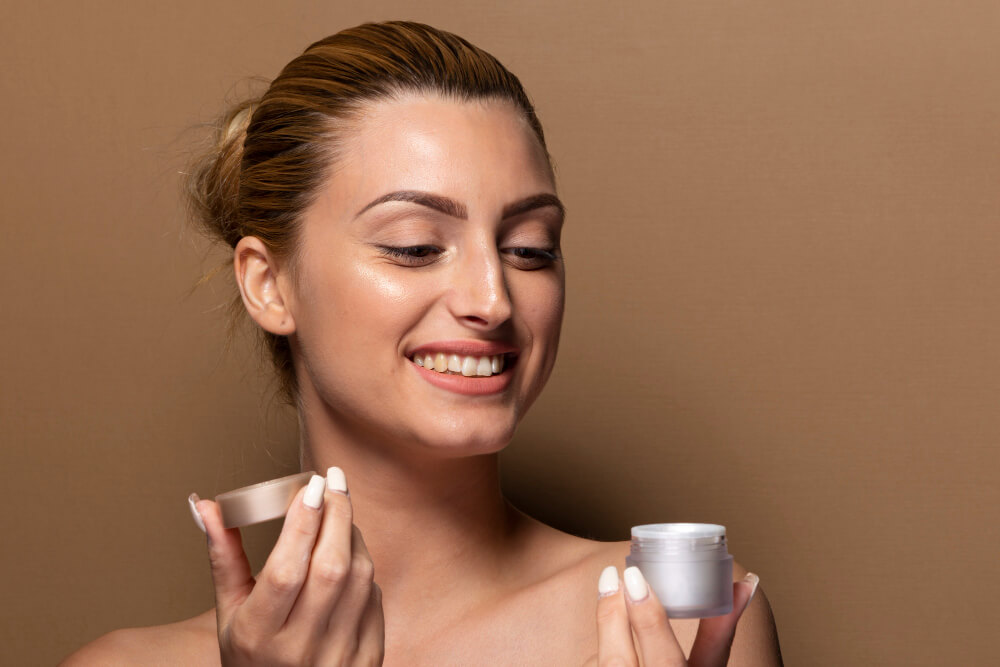If you follow a skincare routine, you are probably already aware of the importance of a good moisturizer. These are generally applied after cleaning your face with a face wash or cleansing agent to lock in the moisture. This simple step keeps your skin hydrated, acts as a protective layer, and may even slow down aging in the long run. However, not all moisturizer types are the same.
However, getting the right moisturizer for your skin isn’t just a matter of finding the best or most expensive one on the market; there are various other factors that you need to consider. For instance, did you know that there are 3 different types of moisturizers that are suitable for different types of skin? Read on to learn about all moisturizer types and the pros and cons of using each.
All Moisturizer Types
As mentioned earlier, there are three main types of moisturizers. All of these are composed of different ingredients and are suitable for different skin types.
All moisturizer types
Emollient
These are oil-based moisturizers that generally come in gel, lotion, or ointment forms. Emollients are designed to rebuild the lost lipids of the skin and hydrate, protect, and smooth out the dry and rough patches. Additionally, they act as a balancing agent for your skin’s microbiome and lower any inflammatory tendencies.
Common ingredients found in emollients include cocoa butter, ceramides, mineral oils, jojoba oil, shea butter, collagen, lanolin, and dimethicone. All of these work to improve the texture of your skin by filling the crevices. As a result, your skin appears smoother and potentially brighter. At the same time, some of these ingredients also have anti-aging properties, which reduce the appearance of wrinkles and fine lines.
Who Should Use Emollient-Based Moisturizers?
Emollient-based moisturizers are suitable for people with normal, dry, or combination skin. Since this type of moisturizer is usually lightweight and hydrating, it can go with makeup as well. If you have oily skin, you can still use an emollient-based moisturizer in small quantities. However, if you notice any breakouts or other side effects, stop the use immediately.
Humectants
Humectants-based moisturizers are designed to draw moisture from the environment and seal it inside the epidermis. In addition to that, it binds the water to the skin to help keep it on the surface, giving the skin a more radiant look.
This type of moisturizer is generally formulated using ingredients such as hyaluronic acid, lactic acid, alpha hydroxy acid (AHA), glycerin, and urea. All of these ingredients work to replenish the skin’s moisture and keep it hydrated.
Who Should Use Humectants-Based Moisturizers?
Humectants-based moisturizers are a crucial part of all skincare routines. They are suitable for all types of skin types, including oily. However, due to the nature of these moisturizers, it is best to combine them with one of the other two types of moisturizers. Since humectants derive moisture from the environment, you will get better results when using them with an emollient or occlusive-based moisturizer.
Occlusive
This one of all moisturizer types works by creating a barrier of protective layer on your skin’s surface. Not only does this layer minimize moisture loss, but it also protects the skin from outside irritants, such as pollen, winds, cold weather, and friction.
Occlusive-based moisturizers also use oil-based ingredients, such as petrolatum, petroleum jelly, silicones, and beeswax. However, despite sharing some major similarities with the other two types of moisturizers, occlusive-based moisturizers are hard to replace. They have much lower water content, which gives them a long shelf life without harboring bacteria. This makes them excellent for the cold season.
Who Should Use Occlusive-Based Moisturizers?
This type of moisturizer has a thick consistency, which makes it suitable for dry and dehydrated skin. Additionally, it is also great for aging and sagging skin. However, the thick texture may not be suitable for combination or oily skin. Nevertheless, there are some deeply hydrating occlusive-based creams available on the market that don’t clog pores. These can be suitable for all skin types.
Moisturizer Benefits
By the end of the day, each skin can be slightly different than the other. Therefore, you may have to do your own research before deciding which type of moisturizer is most suitable for your unique needs. However, adding a moisturizer to your skincare routine can provide a number of benefits. Some of these moisturizer benefits include:
- Acne prevention
- Slow aging
- Dryness prevention
- Soothing of sensitive skin
- Bringing out the skin’s natural glow
- Keeping the skin hydrated
- Prevention from sun damage (provided the moisturizer contains SPF)
If possible, consult a good dermatologist before trying a new moisturizer. They will be better able to guide you about the most suitable options for you after examining your skin. And once you get your hands on a high-quality moisturizer, make sure to use it on a regular basis; you’ll thank yourself as you grow older!
